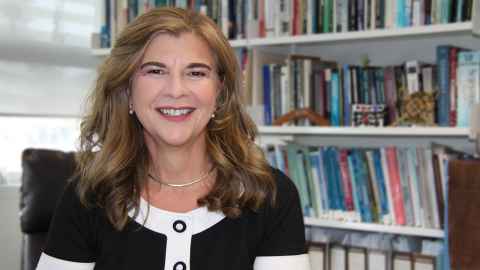Our people
Meet our members and associates and read about their research interests. More information is available in their staff profiles.
Our members

Associate Professor Christina Stringer
Director of the Centre for Research on Modern Slavery
Christina has been researching migrant worker exploitation in New Zealand for nearly ten years. Her interest began with the identification of labour and human rights abuses in the foreign charter vessel (FCV) sector of the New Zealand fishing industry. This critical scholarship, undertaken with colleagues, resulted in wide ranging domestic regulatory reforms with the passing of the Fisheries (Foreign Charter Vessel Sector and Other Matters Amendment) Bill in 2014. This is the first piece of legislation aimed at addressing labour abuses on FCVs in almost 20 years.
This research, in turn, led to research undertaken on behalf of the Human Trafficking Research Coalition (comprising Stand Against Slavery, Hagar New Zealand, Préscha Initiative, ECPAT NZ) and the release of the ‘Worker Exploitation in New Zealand: A Troubling Landscape’ report in 2016. Most recently in 2019, Christina completed research with colleagues into the exploitation of temporary migrant workers in New Zealand, as well as exploitation in the jurisdictions New Zealand compares itself to (Australia, Canada and the United Kingdom). This research fed into the extensive review undertaken by New Zealand’s Ministry of Business, Innovation and Employment (MBIE), into migrant worker exploitation in New Zealand.
Christina is a member of the New Zealand Government’s Modern Slavery Leadership Advisory Group.
Christina has published in a range of journals on labour exploitation and modern slavery, for example: AIB Insights, critical perspectives on international business, Environment and Planning A, Global Networks, Journal of Economic Geography, Journal of Management Inquiry, Marine Policy, Multinational Business Review and the New Zealand Medical Journal.

Dr Brent Burmester
Brent’s interest in modern slavery stems from his research into the political interests and activities of multinational corporations. His publications take a critical view of the role of business enterprises in the international political arena. Understanding that internationalized firms have much to gain from incomplete and contested governance regimes, his main objective is to clarify the role of multinational corporations as governing entities with respect to labour rights.
As a Lecturer in International Business at the University of Auckland, Brent has worked with Christina and Snejina on academic projects for several years. Impressed by their efforts to raise the issue of modern slavery in the international business academy, he joined his CReMS colleagues to examine the linkages between the governance role of multinationals and the persistence of modern slavery. Since then, the connection between labour exploitation and the strategies of international businesses has become a priority in his academic work.
In addition to modern slavery, Brent’s research interests include the evasive role of foreign direct investment, human rights violations by multinational corporations, the deployment of corporate political strategy, and the role of multinationals in international relations. His work appears in Advances in International Management, Marine Policy, critical perspectives on international business, and the Journal of Management and Organization. He is currently Associate Editor of critical perspectives on international business.

Professor Snejina Michailova
Snejina, who holds a PhD from Copenhagen Business School, Denmark, is a Professor of International Business at the University of Auckland. Her research is in international business, management, and knowledge management. The primary unit of analysis in her research is the multinational corporation. She studies cross-border management phenomena, language, power relationships, and allegiances. She examines both intra- and inter-organisational issues related to multinationals as well as their relationships with governments.
Over the last five years, Snejina's research has focused on the topics of modern slavery, host-country nationals in multinationals, and talent management. Many of her publications adopt a critical discourse. Her three main current research projects are on modern slavery, host country nationals, and talent management.
Journals where she has published include: Academy of Management Review, Academy of Management Executive, California Management Review, critical perspectives on international business, Global Strategy Journal, International Journal of Management Reviews, Journal of International Business Studies, Journal of International Management, Journal of Knowledge Management, Journal of Management Studies, Journal of World Business, International Business Review, Long Range Planning, Management International Review, Management Learning, Organizational Dynamics, Organization Studies, R&D Management, Technovation, and others.
Snejina has co-authored Talent Management in Small Advanced Economies (Emerald, 2019) and has co-edited The Routledge Companion on Cross-Cultural Management (Routledge, 2015), the Research Handbook on Women in International Management (Edward Elgar, 2014), Knowledge Governance (Oxford University Press, 2010), Human Resource Management in Central and Eastern Europe (Routledge, 2008) and Research Methodologies in Non-Western Contexts (Palgrave Macmillan, 2005).
Snejina served as Editor Europe for the Journal of World Business (2001-2007) and as Co-Editor-in-Chief of critical perspectives on international business (2017-2019). She is currently Consulting Editor at the Journal of International Management. Since 2018, Snejina has also been a member of the Centre for Workforce Futures’ International Scholarly Advisory Committee, Macquarie University, Australia.

Dr Guy Bate
Originally trained in biomedical research with a PhD in Molecular Physiology, Guy spent over 15 years as a consultant and manager in the pharmaceuticals, biotechnology and health technology sectors. This sensitised him to the ethical and political dimensions of technology research, development and use. This thinking was further developed during his PhD studies in Management which inquired into the shifting relations of power which accompany digital transformation within organisations.
Following from this, his current research adopts a critical, posthuman stance on the sociotechnical relations that constitute practices, norms and values. From this position, technologies are viewed as non-neutral mediators of human affairs. There is significant potential for such thinking to contribute to the important work of CReMS. It opens up opportunities to critically interrogate how technology is deployed to perpetuate the conditions of labour exploitation and modern-day slavery, as well as to consider the potential value of the plethora of new technologies being developed to combat such conditions. An overarching question that Guy therefore seeks to address is: how might technologies be ‘better’ designed and implemented in this high-impact context?

Dr Joseph Yan
Joseph is a Lecturer in International Business at the Department of Management and International Business, the UOA Business School. He holds a PhD in Strategy and International Management from Monash University, Melbourne, Australia. His research lies in the areas of Strategic Management and Organisation Theory with a focus on the multinational context. His published works cover a range of topics in both international business and general management, such as organisational institutionalism, global strategy, cross-culture management, and government policies.
Joseph is concerned with modern slavery from an international management perspective, inspired by analytical approaches from sociology and anthropology. He seeks to advance understanding of issues in relation to labour exploitation, corruption, and employee wellbeing in multinational operations in both developing and developed economies.
In addition to his involvement in CReMS, Joseph is also a member of several international academic communities, namely Academy of Management, Strategic Management Society, and Academy of International Business.
Our associates
- Dr Martijn Boersma
University of Technology Sydney
- Dr Thomas Harré
Barrister - Professor Justine Nolan
University of New South Wales - Professor Natalia Szablewska
The Open University (UK)